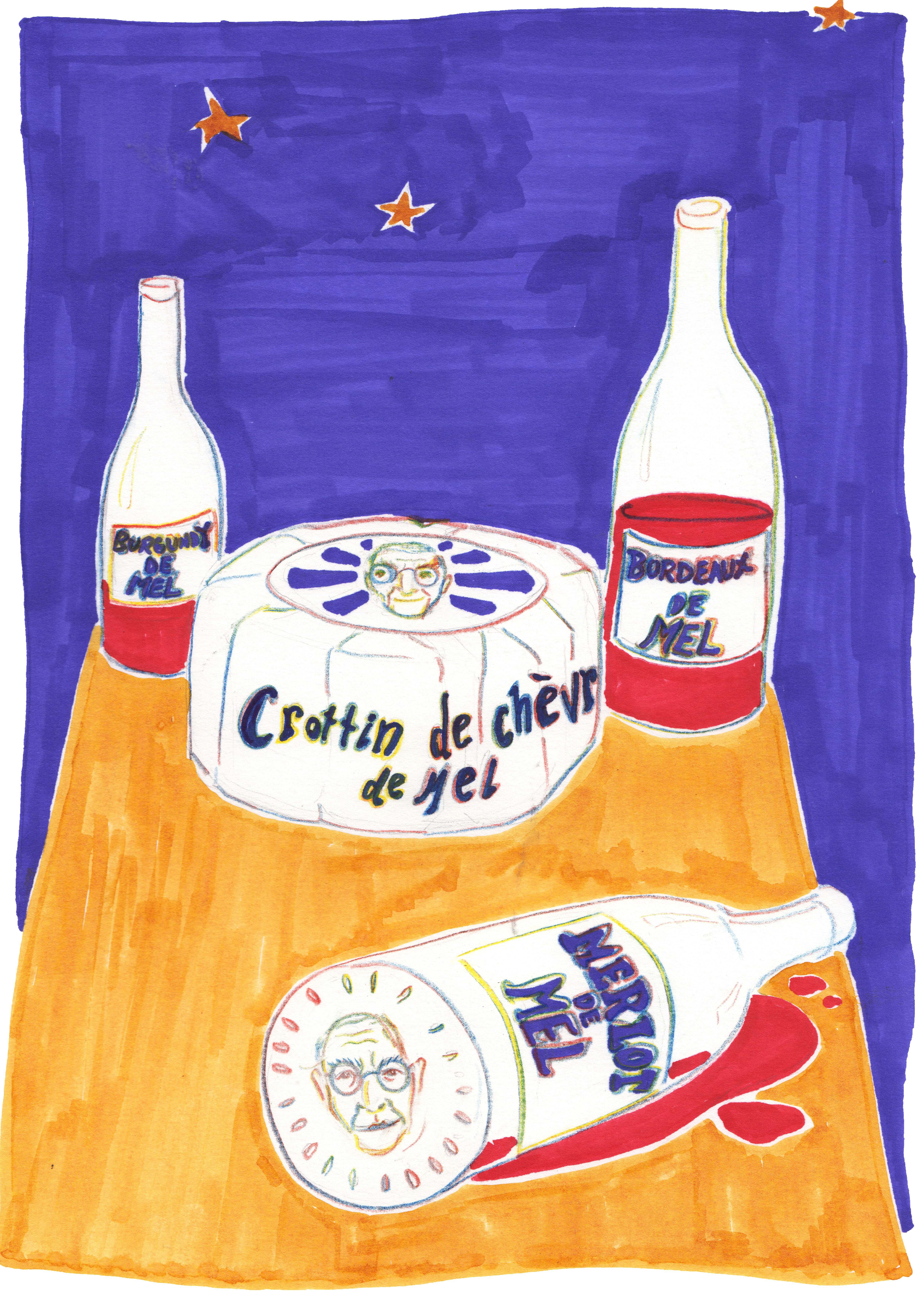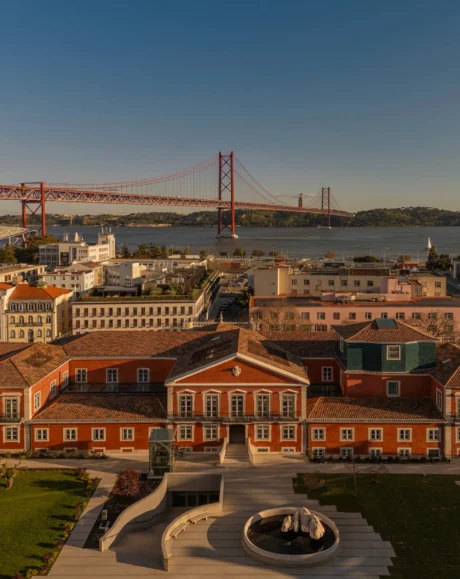
“How can you govern a country that has 246 varieties of cheese?”
—Charles de Gaulle
I have been visiting Paris since 1988. Early on I stayed in hotels for a few weeks at a time. Five or so years later, I met a woman who invited me to stay in a spare room in her apartment, which was on the same street as President Mitterrand’s. Her companion lived across the Champs de Mars in his own flat because she wouldn’t endure his being under her feet.
I came and went between the US
and France haphazardly, eventually moving here full time from 2001 to live in a small apartment I had purchased for 60,000 euros. I soon rented it out and moved into a large rental with a lovely garden. In those days, in order to secure a landline or fixed telephone—no smartphones then—a new tenant had to know the number of the previous tenant to get connected. Then there was the Minitel, a pre-internet online service that was stupidly not pursued by the French—it provided banking services, travel reservations and porn to millions in the 1980s and ’90s. It was difficult to navigate all these cultural differences and my survival would not have been possible if friends had not held my hand.
“The French like to say what isn’t there, rather than what is”
The best feature of the 22 sq m apartment was that it was within walking distance of the Gare du Nord, the station where the train arrives from the airport and the Eurostar is located, and the rue des Martyrs, an upscale shopping street. Its worst feature was that it was on the fourth floor (American fifth). The bathroom was so small that I could hardly turn round to dry myself—I almost wrote “barely”. Sunlight blasted through two large windows in the single living area. There was an unobstructed view, which the French call “sans vis-à-vis” or “without face-to-face”. The French like to say what isn’t there, rather than what is; by extension, to express modest approval of something, they say “pas mal”, which means “not bad”. (Heaven forbid anyone should say “bon” or even “très bon”.) And there were church bells pealing to mark midday and the beginning of evening. It was all very exotic, and I loved it—for a time.
If I forgot a grocery item, I did without it, refusing to walk down the stairs again to the market and then back up. But after ten years, I got fed up with this arrangement and bought an apartment with an elevator—in a less desirable area. The new place is on the sixth floor (American seventh). Different from the previous one, it has a big bathroom, a small kitchen with a view and a washer-dryer. It too has a good view of rooftops towards the north-east. There is a sea of grey tin roofs. In the far distance is the church of Notre-Dame-de-la-Croix de Ménilmontant. In fact, I can see it now while writing this column. Nearby are Algerian bakers who offer pastries that smell like expensive perfume. And what about the pharmacies on every block? They are heavens of cosmetics and drugs.
Due to problems too depressing and convoluted to describe—and also boring—I will be leaving the apartment soon. Thus, I will be departing Paris as a resident, thereafter to return only as a tourist. (I don’t like tourists.) Besides, after thirty years, I have had enough. I can hear you chiding me: “But, Mel! It’s Paris.”
Once in New York while preparing for a trip to Paris years ago, I complained about the rain that would inevitably meet me on arrival. A US colleague responded: “But, Mel, it’s Paris.” So I’ve given some thought to “But, Mel, it’s Paris.” I have told Mr Porter to please stop with his “I love Paris every moment of the year”. Because he was very rich, Cole Porter lived very well here. I don’t. In fact, my apartment gives me claustrophobia and is endlessly dusty.
“I am happy to report that France is a utopia today compared to the time around and between world wars”
Yesterday I visited the Square Gardette, near me, for the first time. It isn’t big but big enough. There is a charming bandstand with a wooden roof supported by nineteenth-century ironwork. The green-painted lamps are the same as they were more than a hundred years ago. A large portion is devoted to children’s play apparatuses such as a sliding board and a climbing frame. A rocking device is popular; exuberant kids vigorously fling themselves back and forth.
Arriving at two in the afternoon, I sat down and began reading a chapter of Alan Riding’s depressing book “And the Show Went On”, which is about the Nazi occupation of France in the 1940s as well as the highly dysfunctional state of the country in the 1920s. I am happy to report that France is a utopia today compared to the time around and between world wars. Due to the enormous influx of foreign creatives then, it’s possible to assume that the time was delightful. It wasn’t.
Within two hours, the park became flooded with toddlers, very noisy but adorable little things. I couldn’t concentrate on my reading, so I left and strolled around where I hadn’t been before. The city’s streets, shops and architecture—all nice and not so nice—are endlessly fascinating.
Before I left the park, I did a little thought experiment and pretended that I had just landed by way of the Star Trek transporter, unaware that I was in Paris and blocking out the sounds, so unable to hear French voices. Would I know immediately where I was? I realized that there was nothing in the park that said “Paris” or “France”, except perhaps for the railing around it and the architecture of the bandstand. The women accompanying the children seemed to be grandmother-caretakers, obsessive and doting progenitors.
There was a smattering of harmless and unobtrusive homeless men and women. A sign indicated that there was space reserved for “pétanque”, a word I had to look up; it means bowling. My French has never been particularly good. Incidentally, if you make a mistake here, a French person will correct you. Americans feel that correcting someone is impolite.
“I will be departing Paris as a resident, thereafter to return only as a tourist. (I don’t like tourists.)”
The large green and yellow garbage bins, much like those of other cities, are called “poubelles”, after Éugène Poubelle. A lawyer and diplomat, he introduced trash bins to Paris in the 1880s. He even helped mandate the separation of refuse types—into paper, food, crockery and so forth. A unique feature of Paris might be its poubelles for glass—those for apartment buildings and super-large ones on street corners. It’s probably because the French drink an enormous amount of wine from glass bottles, introduced in 1822 by Louis Nicolas of Nicolas wine-store fame. My problem is that I always forget the single day of the week when the glass is collected for my building and so I have to sit with bottles until the following week, when I forget again. The French drink so much wine that the weekly bins cannot hold all the bottles. A story tells that a man, whom his doctor suspected of being an alcoholic, asked: “Do you drink a lot of alcohol?” The patient told him: “No.” The doctor enquired further: “Do you drink wine?” The patient said: “Oh yes, three bottles a day.” The French don’t think of wine as alcohol; it’s food.
Of course, I will sorely miss the greatest contribution that France has made to world culture. Oh my God, the food! Where I live the rest of the year, in the US South, there are few shops that offer good French cheese. Or even bad French cheese. In Paris, you can find special cheeses made in small quantities—the cheesemongers evidently care little about becoming rich. And, amusingly, a very small round piece of goat’s cheese is called a “crottin de chèvre” or goat’s turd; “crottin de cheval” means horse manure. It’s another French trait; vulgarity is ingrained. The food here is inexpensive but of a very high quality. Doesn’t everyone know this? And farmers are respected, not just dumb shit-kickers. The selection of wines available in supermarkets is as expansive as in a specialist off-licence. Of course, imported foods have infiltrated. British whiskey is cheaper than in the UK. The coffee choices are vast. And who can resist Japanese gummy bears?
Historic signs on buildings abound, most stating who lived and/or died there. I was once jarred by a plaque on the façade of the Lycée Voltaire, a high school near me. I must have walked by it at least a hundred times before noticing its declaration that more than one thousand children had been deported to concentration camps and subsequent death during World War II—from the eleventh arrondissement alone. Paris has twenty arrondissements.
France is a socialist country. Prescription drugs and healthcare are readily accessible. There might be demonstrations in the streets against one issue or another every week. Corporate greed is held somewhat in check. The citizens, who complain endlessly, nevertheless like the place. Due to geography, the French are a combination of practical northern Europeans and emotional southerners. Like everywhere else on the planet, the population is changing, so who knows what the French will be like in the future. Probably very different and pretty much the same. They have an expression for that: “Plus ça change, plus c’est la même chose.”





